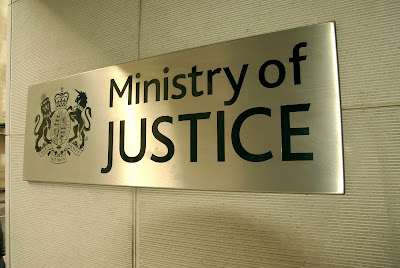Solicitors across the UK are expressing concerns surrounding legal aid cuts, which have been introduced by justice secretary, Chris Grayling.
Grayling’s original measures included reducing the number of firms that provide legal aid from 1600 to 400 and not allowing defendants to choose their lawyer. The latter measure in particular received widespread criticism, despite the cuts expecting to save over £220 million a year. Although Grayling has since allowed clients to retain their right to a choice of solicitor, the original measure would have been likely to hurt poorer victims as they would have been unable to afford specialist representation.
Gordon Dean, a personal injury solicitor in Norfolk, accepts that cuts are necessary during a recession but argued that ‘there are better ways of making the cuts and the right to access to justice must be protected, particularly for those at the bottom of society.’ On Grayling’s u-turn regarding the right to choose a solicitor, Dean commented, ‘I think he has only conceded on allowing people to choose their own criminal solicitor because there would have been a public backlash once people realised what it meant to be both prosecuted by the government and have your lawyer chosen by the government.’ Dean fears that the law will develop in to a two-tier system – one for the rich and one for the poor. However, in reality, it’s not only the poor that will suffer from the cuts. The measures also include denying households who have an income of £37,500 legal aid.
The cuts are expected to hit women and families the hardest. People can no longer get funded for divorce, child contact or residence disputes. Therefore, for women who want to get a divorce from their husband who has been having an affair, this will now be made much more difficult than previously. There have also been case studies where children were being kept after contact, resulting in them being unsure on where they lived and who they lived with.
Also, victims of domestic abuse will likely suffer additional trauma, as they now have to provide medical proof they have been abused. Victims of rape will therefore have to fork out at least £50 for a doctor’s letter or £75 for a police disclosure. For victims who are on a fine budget already, this is undoubtedly an expense they could do without.
The cuts will have a knock on effect on the industry as a whole. Younger lawyers, alongside the more talented individuals, are choosing not to work in crime, resulting in a drop in the quality of defence, and also quality of the prosecution.
The UK government are keen to press forward with their measures despite widespread concerns about equal access to justice. With the cuts expected to result in more people representing themselves in court, firms are now looking to alternative sources of funding, such as charities, in order to plug the gap caused by government cuts.



 12+ years sharing great legal advice
12+ years sharing great legal advice
